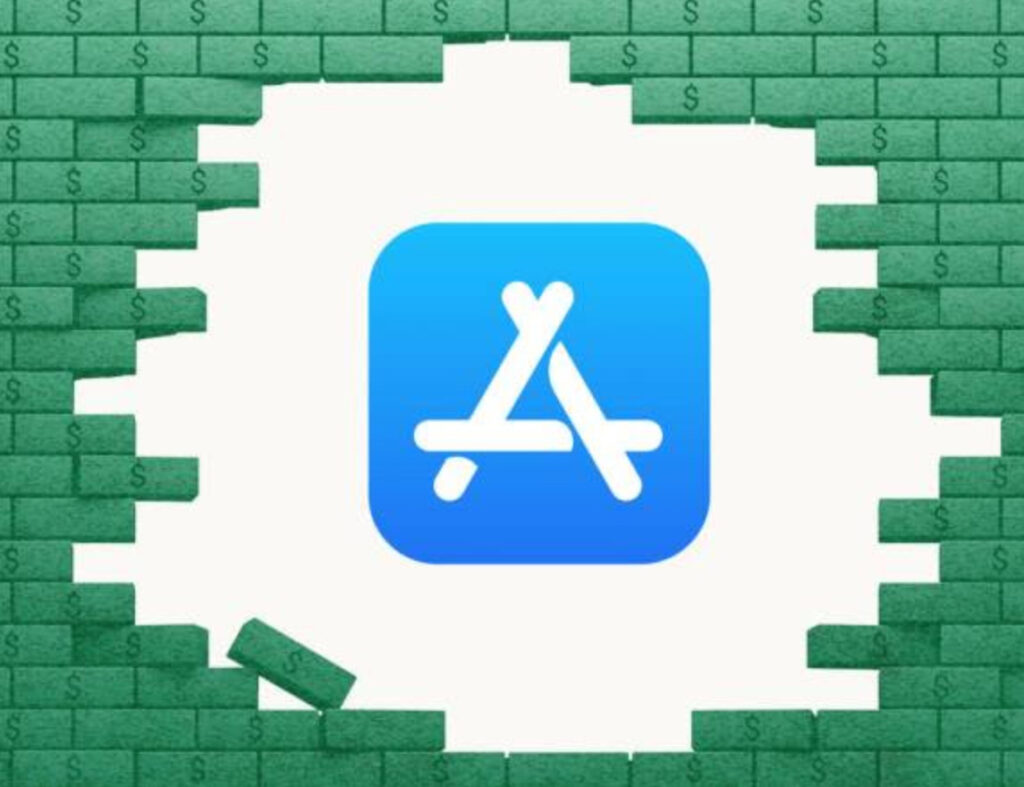For more than a decade, Apple’s App Store has operated like a gated kingdom—every app, every feature, every payment flowing through Cupertino’s narrow corridors. Developers who dared point users beyond the walls—to a browser, a website, an external checkout—paid dearly for it. Either they coughed up 15–30% of revenue to Apple, or they didn’t offer in-app purchases at all.
But last week, in a ruling that could redefine the mobile app economy, a federal judge struck a blow against that regime. The court barred Apple from charging its 27% fee on developers who direct users to outside payment platforms—a fee Apple began enforcing as a kind of workaround after being previously ordered to allow link-outs. Now, those links can return without penalty.
The decision is both surgical and symbolic. On paper, it trims a specific policy. In practice, it signals a shift in power—a tilt toward developers, platforms, and users long boxed into Apple’s profit-driven convenience.
Apps that once looked like digital storefronts with locked doors are now opening those doors wide. And Apple, for once, is on the defensive.
The Policy That Broke the Model
To understand what changed, you have to understand how Apple structured its App Store economy. At its core, the business model was simple: if you offer digital goods or subscriptions inside your app, Apple gets a cut. Initially 30%, that fee dropped to 15% for small developers or after the first year of subscription renewals. But if you tried to dodge the system—say, by linking out to a website where users could subscribe or buy content—Apple would block or reject your app.
After losing a portion of its legal battle with Epic Games in 2021, Apple was ordered to allow “external links” in apps. But it responded by creating a new fee: 27% of any revenue generated through those links. For developers, that felt like a technical compliance with the court, but a practical continuation of Apple’s grip.
Last week’s ruling eliminated that 27% fee. It didn’t dismantle the App Store. It didn’t force Apple to allow third-party payment processors. But it did restore a channel—external linking—that developers can now use freely, or at least more affordably.
The result is a small but seismic shift.
Apps Are Wasting No Time
Since the ruling, app developers have moved quickly to take advantage of the newfound freedom.
Spotify, which has long railed against Apple’s restrictions, now shows subscription pricing and offers direct links to its website. A three-month free trial—previously inaccessible via app—is now just a tap away. This is a dramatic change for a company that once couldn’t even mention the word “premium” inside the iOS app without triggering Apple’s ire.
Amazon’s Kindle app, another longtime holdout, has added a “Get Book” button that routes users to its own store. Previously, readers had to exit the app, open a browser, and navigate to Amazon manually to buy a book—an absurd friction point for a company synonymous with 1-Click shopping.
Patreon, a creator monetization platform, also reintroduced external purchase links, enabling artists, podcasters, and indie creators to once again steer users directly to memberships. Under Apple’s earlier policy, Patreon was facing a deadline to move all subscriptions inside the app—effectively giving up 30% of earnings or passing that cost to fans.
Then there’s Delta Emulator, a retro gaming app recently allowed on the App Store under Apple’s new relaxed rules on game emulation. Its developer, Riley Testut, had long avoided even mentioning his Patreon page in the app. Now, it links to it directly—without Apple siphoning nearly a third of user donations.
“Before this ruling, just writing ‘support me on Patreon’ meant risking 27% of that donation going to Apple,” Testut wrote. “Now we can actually talk to our users.”
Epic Games: The Return of a Rebel
Perhaps the most symbolic development came this week, when Epic Games applied to relist Fortnite on the App Store.
The game had been banned since 2020, when Epic added its own in-app payment system and triggered Apple’s legal wrath. What followed was a years-long legal battle—one that Epic mostly lost, but which led to the court’s original mandate allowing link-outs.
Now, with the 27% link tax scrapped, Epic sees an opening. CEO Tim Sweeney, a longtime critic of Apple’s closed ecosystem, took to social media to celebrate the ruling and renew his call for open platforms.
“It’s a step in the right direction,” he tweeted. “Users deserve the freedom to choose how they pay, and developers deserve a fair market.”
Epic’s move suggests that even its bitterest feud with Apple might thaw—at least if the economics make sense. It’s a symbolic victory as much as a commercial one. And it signals what could be a new phase of competition on Apple’s own turf.
Apple’s Defense: Appealing and Delaying
Apple, for its part, isn’t backing down. It filed a motion this week asking the court to delay enforcement of the ruling while it appeals. That could buy time—but it also signals anxiety. Apple has long justified its commission as the cost of maintaining a secure, curated, high-quality marketplace.
In a statement, Apple warned that allowing unfettered link-outs could expose users to scams or deceptive billing practices. “We remain committed to protecting users,” the company said. “And we believe our guidelines strike the right balance.”
But critics aren’t buying it. They argue that Apple’s concern is less about user safety and more about protecting a multi-billion-dollar revenue stream. App Store fees brought in an estimated $20 billion in 2023 alone, according to Morgan Stanley. Even small changes in policy could put billions at stake.
What This Means for Developers
For developers, the decision is both liberating and complicated.
On the one hand, they now have a clearer path to monetization outside of Apple’s ecosystem. That opens the door to lower prices, better margins, and more flexible user experiences.
On the other hand, it creates a patchwork reality. Developers must now weigh whether to process payments through Apple’s system (convenient but expensive), external links (cheaper but less seamless), or some hybrid approach. They must also navigate Apple’s remaining rules, which still require disclosures, interface design approvals, and other compliance steps.
“This isn’t open season,” says legal analyst Maria Rinaldi. “Apple can’t charge 27% anymore, but they can still impose rules. They’re not going to make this easy.”
Indeed, Apple has a history of interpreting rulings narrowly and enforcing them aggressively. Developers will need to remain vigilant, and many will likely wait to see how the appeals process unfolds before making drastic changes.
What This Means for Users
For consumers, the shift is both subtle and potentially significant.
On one level, it means fewer dead ends in apps. You may no longer hit a brick wall when trying to subscribe or make a purchase. You might get better deals, too—developers no longer have to bake in a 30% surcharge to cover Apple’s cut.
On another level, it might change the way you interact with your phone. If link-outs become standard, the boundary between app and web begins to blur. Will that make things more convenient, or more chaotic?
There’s also the issue of security. Apple’s warnings about scams aren’t entirely unfounded. External links do carry risks—especially if they’re not clearly marked or come from lesser-known developers. Users will need to be more discerning.
But overall, the consensus is clear: more choice is better.
“This restores a basic digital right,” says developer advocate and EFF advisor Parker Higgins. “You should be able to decide how to pay for things on your own phone.”
The Bigger Picture: Cracks in the Wall
More broadly, the ruling fits into a global trend of challenging Apple’s dominance.
The European Union’s Digital Markets Act is already forcing Apple to allow third-party app stores and alternative browsers. Japan, South Korea, and India are considering or implementing similar measures. In the U.S., the DOJ’s ongoing antitrust lawsuit against Apple could bring even greater changes, including structural reforms.
Put simply: the pressure is mounting.
This court ruling doesn’t break Apple’s walled garden. But it does pry open a few bricks. And it suggests that Apple’s control over iOS is no longer absolute.
“Apple isn’t invincible anymore,” says analyst Benedict Evans. “They’re still dominant. But the regulatory tide is turning.”
Impression
The App Store isn’t crumbling, but it’s changing.
Developers have more leverage. Users have more options. And Apple, for once, has to play defense.
For creators like Spotify, Patreon, and Epic Games, that’s reason to celebrate. For Apple, it’s a moment of reckoning. The company that built the iPhone ecosystem around tight control is being forced to loosen its grip—if only slightly, and possibly only temporarily.
But history shows that even small cracks can lead to wider openings.
The App Store is still the biggest game in town. But it’s no longer the only one. And the walls are no longer as high as they once seemed.
No comments yet.








